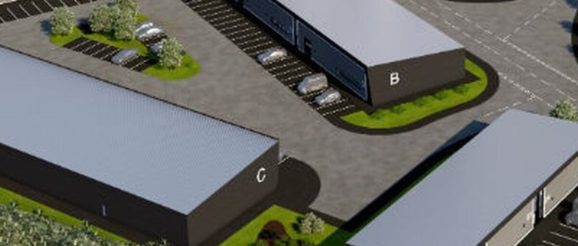Work to start next month on Newport innovation park | Shropshire Star

Highways work linked to the Ni-park will begin on December 4 and are expected to last for a year. During that time, there will be a 30mph limit in place on the A518 past the site.
Telford & Wrekin Council said the park will provide high value jobs to Newport and the local area, as well as attracting hi-tech businesses to the area. The whole borough will benefit from the economic benefits, it said.
The development is supported by Telford & Wrekin Council, the Marches Local Enterprise Partnership and Harper Adams University.
The infrastructure works will also seek to address traffic growth in and around Newport associated with new developments.
Councillor Lee Carter, Telford & Wrekin Council’s cabinet member for the borough economy, said: “Ni-Park is set to put Telford and the UK at the forefront of high efficiency agriculture and I am delighted that work is about to begin.
“It will bring together agricultural and technical companies enabling industry experts to collaborate on and commercialise new technologies.
“Ni-Park will pioneer an epicenter of global intelligence, drive growth and support innovation to help farmers and businesses achieve sustainable productivity in agriculture and farming.”
Mandy Thorn, chair of the Marches Local Enterprise Partnership, said: “Ni-Park is a LEP supported project which will really put our region on the map.
“Not only is it a flagship development in the agri-tech sector nationally, it has tangible benefits for our businesses and our regional economic growth.
“We are committed to funding schemes that deliver the creation of sustainable jobs and this investment will do exactly that.”
Dr David Llewellyn, vice-chancellor of Harper Adams University, said: “We are excited to see the construction phase of this project get under way.
“We will be supporting the local authority to create an ecosystem for agri-tech innovation at Ni-Park that will build upon ground-breaking research conducted by the university.
“This includes the world-leading Hands Free Hectare experiment, which has now been extended to a farm-scale project that will run for the next three years and the recent launch of our Global Institute for Agri-Tech Economics, which is improving our understanding of new food production methods.
“There is considerable interest worldwide in improving productivity in the various ways in which we provide our food.
“This collaboration will enable industry and academia to find the right solutions to not only develop future food production systems, but also to find ways in which those systems can protect our natural resources, improve biodiversity and help us all in the challenge of tackling climate change.”
